| 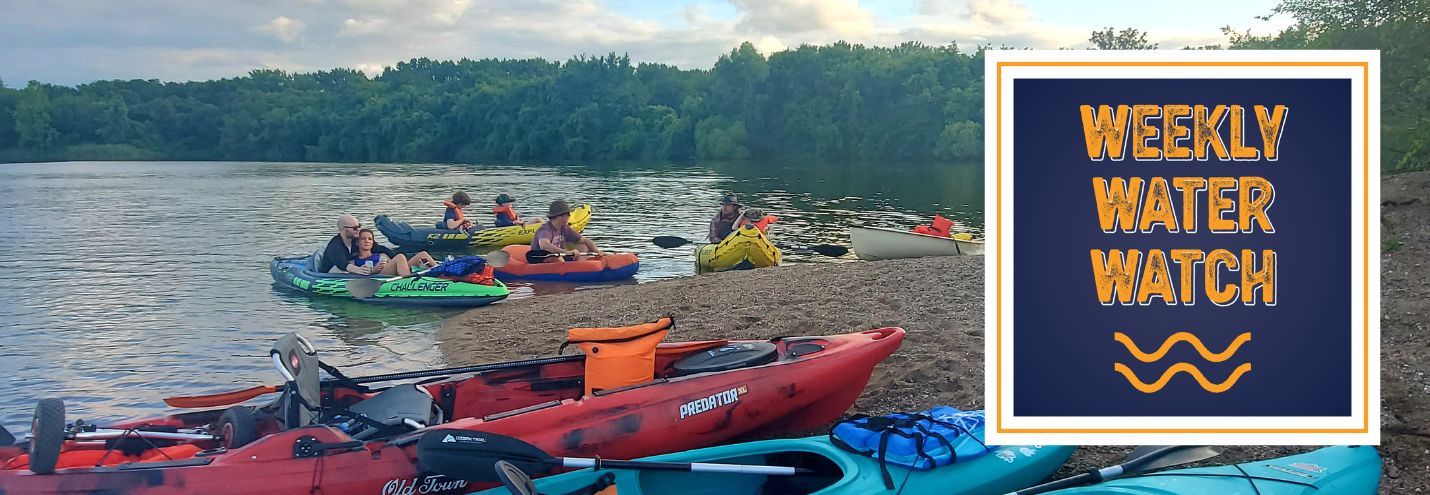 | | 15 Beaches with an E. coli Advisory:
Backbone Beach (Dundee, Delaware County, IA)*
Beed’s Lake Beach (Hampton, Franklin County, IA)*
Big Creek Beach (Polk City, Polk County, IA)*
Emerson Bay Beach (West Okoboji Lake, Milford, Dickinson County, IA)*
George Wyth Beach (Waterloo, Black Hawk County, IA)*
Lake Ahquabi Beach (Indianola, Warren County, IA)*
Lake Darling Beach (Brighton, Washington County, IA)*
Lake of Three Fires Beach (Bedford, Taylor County, IA)*
Lower Pine Lake Beach (Eldora, Hardin County, IA)*
McIntosh Woods Beach (Clear Lake, Ventura, Cerro Gordo County, IA)*
Nine Eagles Beach (Davis City, Decatur County, IA)*
North Overlook Beach (Lake Red Rock, Pella, Marion County, IA)**
Pleasant Creek Lake Beach (Palo, Linn County, IA)*
Sugar Bottom Campground Beach (Coralville Lake, Coralville, Johnson County, IA)**
Union Grove Beach (Gladbrook, Tama County, IA)* 1 Beach with a Microcystin Advisory:
Lake Darling Beach (Brighton, Washington County, IA)* 1 City and County Beach exceeds the state’s advisory threshold for E. coli.*
View the map on our website to see where. Note: Lake Keomah has been completely drained for lake renovations activities and the beach is closed for the remainder of the season. Oak Grove Beach at Saylorville Lake remains closed due to flooding. *Data from the Iowa DNR State Park Beach Monitoring Program
**Data from the U.S. Army Corps of Engineers, Rock Island District |
| Measuring the Gulf of Mexico 'Dead Zone' |
| According to researchers at the National Oceanic and Atmospheric Administration (NOAA), Louisiana State University, and Louisiana Universities Marine Consortium, the Gulf of Mexico's 'dead zone' has expanded to over four million acres or more than 6,700 square miles, which is significantly larger than researchers predicted. This area, bringing the five-year average size to 4,298 square miles, is roughly two times larger than the 2035 target set by the Mississippi River/Gulf of Mexico Hypoxia Task Force. From the Mississippi River, pollutants flow into the Gulf of Mexico. This includes massive amounts of fertilizer runoff, such as nitrogen and phosphorus, from Iowa's farmland. For the past four years, Iowa suffered from a prolonged drought. This year, however, the four-year buildup of over-applied fertilizers paired with extreme flooding in some areas caused an 'epic increase' in nutrient pollution to waterways. Once in the Gulf, these nutrients trigger algae blooms that choke off oxygen, making the aquatic habitat unsuitable for fish and marine life. This causes countless issues for the Gulf's leading industries: seafood and tourism. In a 2020 study, the Union of Concerned Scientists found that pollution from the 'dead zone' costs $2.4 billion annually to these industries. Although the dead zone area is larger than researchers predicted, NOAA is actively developing new technologies to understand the changing 'dead zone' and its impacts on the national economy. NOAA's monitoring programs include Coastal Hypoxia Research, Ocean Technology Transition, Uncrewed Systems and the Hypoxia Watch programs, and is working to deliver technical assistance and monitoring to local governments and nonprofits. In 2023, IEC's Water Program Director Alicia Vasto attended the Mississippi River/Gulf of Mexico Hypoxia Task Force meeting to address pollution caused from upstream. Vasto found that the Hypoxia Task Force was unserious about creating meaningful, lasting changes in the basin. You can read her written comments and oral remarks on our website. "I’m not giving up, and neither should you. We must continue to call for real solutions and accountability for clean water in Iowa, the Mississippi River, and Gulf of Mexico," says Vasto. "We can still improve and protect water quality for Iowans, our downstream neighbors, and the fish and wildlife that call these places home." |
| |
|
| | 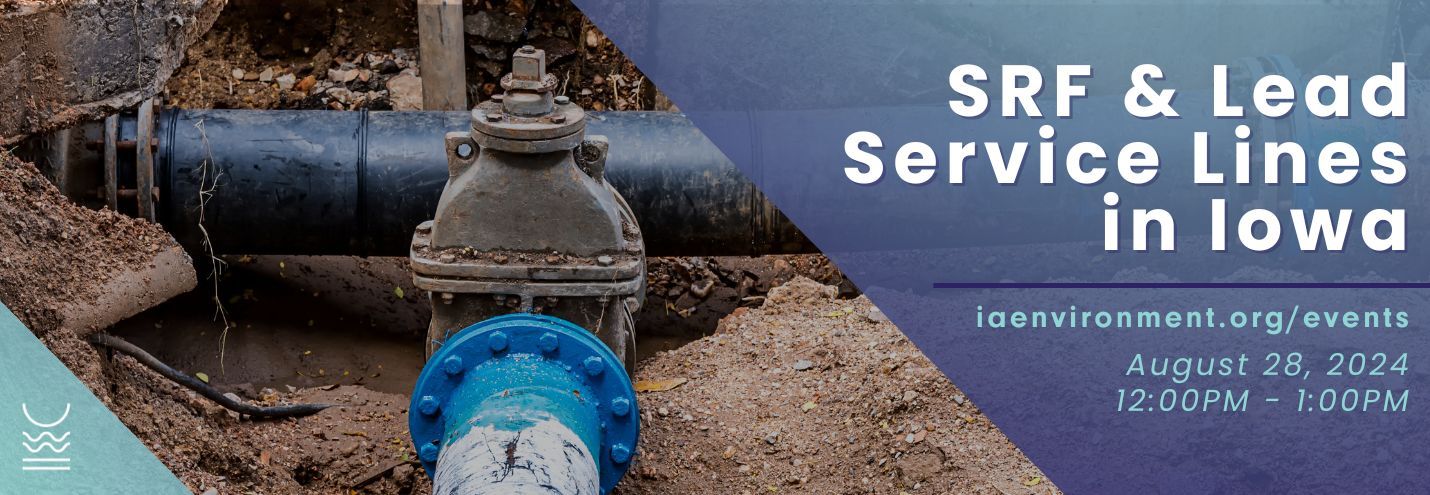 | | 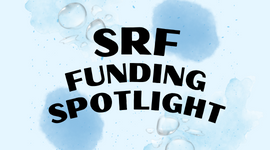 | SRF Spotlight: This Month's Webinar & New Factsheet Iowa's State Revolving Fund (SRF) is a primary resource for financing drinking water infrastructure and water quality improvement projects. Between the Clean Water Loan Program and Drinking Water Loan Program, communities, watershed groups, and public water systems can access low-interest loans to finance projects that range from wastewater treatment to drinking water treatment upgrades, stormwater management, source water protection, and more. The Bipartisan Infrastructure Law (BIL) serves as an investment to strengthen infrastructure throughout the United States. This includes rebuilding roads and bridges, upgrading public transit, delivering high-speed internet to rural and underserved communities, with increased funding available to Iowa's SRF, replacing lead pipes to provide clean water. This month, IEC is excited to host a webinar on State Revolving Funds, lead service lines, and community projects in Iowa. The webinar will include expert speakers, including Jenny Puffer from the Des Moines Water Works. This is an opportunity to learn more about Iowa's SRF, BIL financing, and ask questions to water experts. For more information, check out our newest factsheet on the SRF and lead service lines, and sign up for the webinar on our website. |
|
|
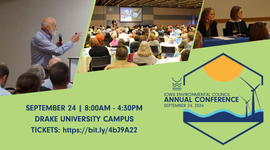 | Register for the Iowa Environmental Education Week IEC and The Harkin Institute for Public Policy and Citizen Engagement are partnering to present Iowa Environmental Education Week, a dynamic series of events that are open to the public, students, and the environmental community. The four-day event begins September 23, with engaging events in Des Moines that address urgent environmental issues impacting the entire state: | |
|
|
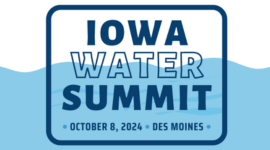 | Izaak Walton League's Iowa Water Summit Registration is open for the Iowa Water Summit! The event will take place on October 8 at the Drake University in Des Moines. The Iowa Water Summit serves in partnership with the two-day Iowa Nature Summit, beginning on October 9. Hosted by the Izaak Walton League Iowa Chapter, the Iowa Water Summit will bring together organizations and individuals with a shared interest in clean water and water quality monitoring. This one-day gathering will focus on volunteer water quality monitoring, facilitating the sharing of ideas and the strengthening of relationships between groups and individuals that collect and utilize water quality data across Iowa. The event will include programming from 9:30am to 4:30pm where you can hear from speakers and panelists, interact with exhibitor tables, and learn from environmental advocates. Immediately following the educational event, there will be an optional networking session, dinner, and presentation from the Izaak Walton League from 4:30pm to 8:00pm. Learn more and register for the event on Izaak Walton League's website. |
|
|
| | 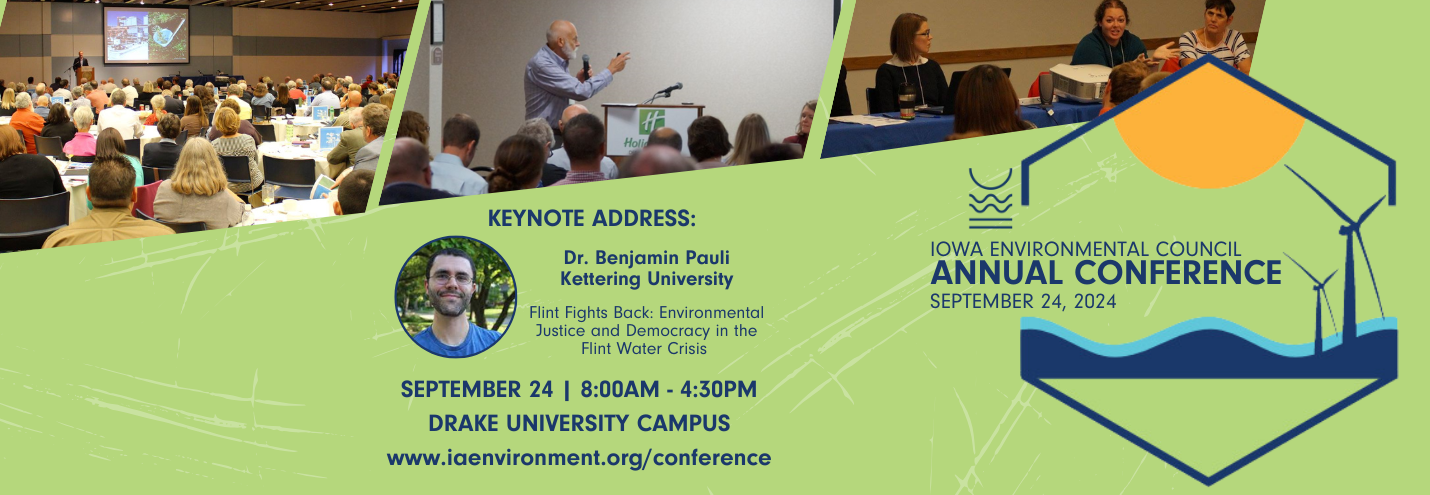 | | What's new in Iowa's water news: |
|
|
| | | 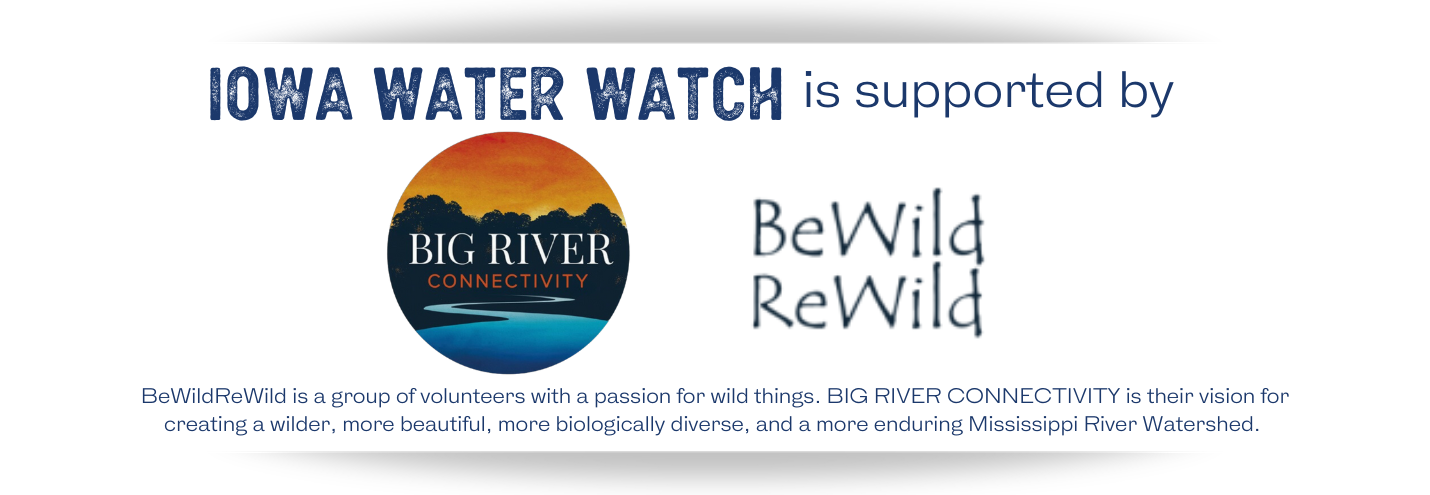 | | | Iowa Environmental Council
505 Fifth Ave., Suite 850
Des Moines, Iowa 50309-2317
515-244-1194 | iecmail@iaenvironment.org |
|
|
|
|
|